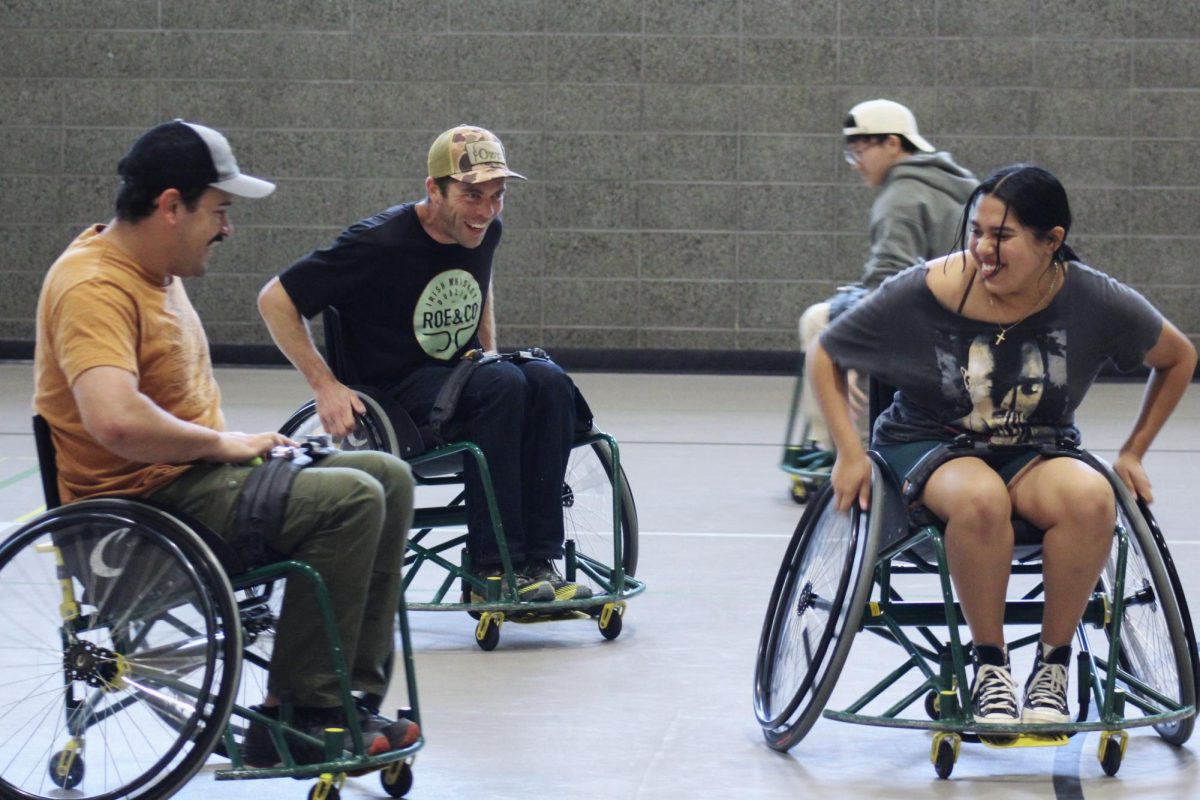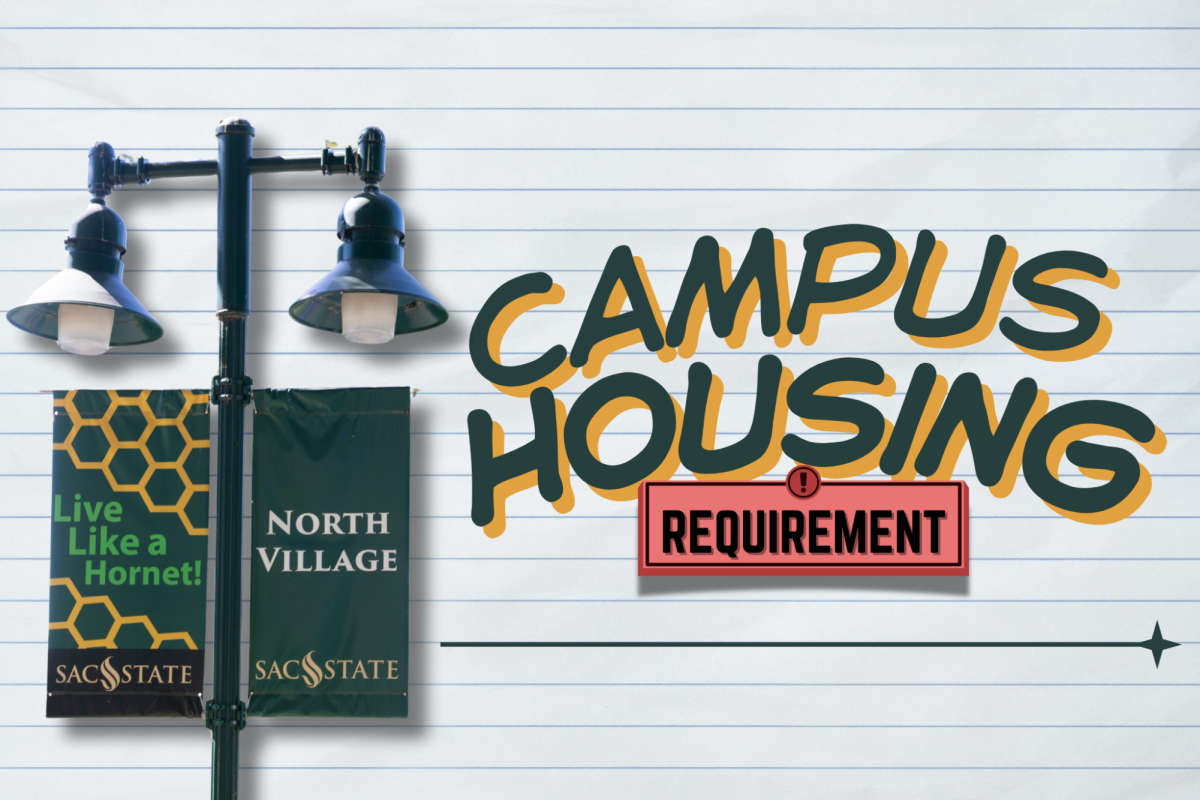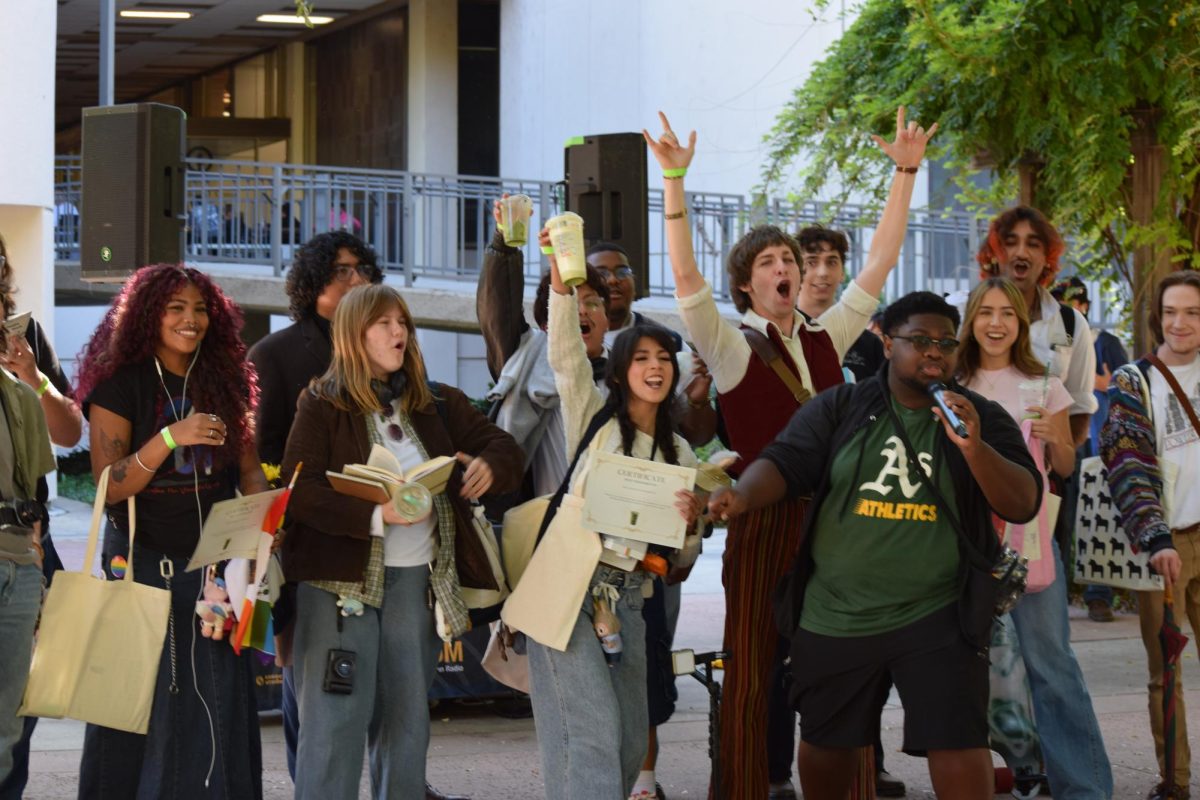Obama honors Sac State ?with distinction?
March 24, 2010
Sacramento State was one of more than 700 universities and colleges that were recently honored by President Barack Obama’s Higher Education Community Honor Roll.
The award recognized colleges and universities that show an exemplary amount of community service. The Office of the President defined community service as any kind of volunteering, service learning, field practicum and internships, said Sheila Macias, director of Sac State’s Community Engagement Center.
Only 115 universities and colleges, including Sac State, received the title “with distinction,” which means these schools demonstrated an extraordinary amount of community service.
“We were able to identify a spectrum of community engagement at Sac State and the honor of “distinction’ means that we are doing something worth more recognition,” Macias said.
According to the president’s website, the benefits of the honor roll membership include earning recognition as a service leader in the community, garnering additional community partnerships and fulfilling an institution’s civic mission.
Macias said there are additional benefits. This award shows that students are doing more than just coming to school, taking their classes and leaving. This recognition could possibly help when applying for federal grants to fund Sac State’s community service programs, she said.
“This provides an opportunity for the region to have an idea of what the university is doing. This award speaks to many contributions the students are making and educates the larger region,” Macias said.
A variety of projects and organizations, such as Project PLAY, Student Activities, College Assistant Migrant Program, Urban Education Teaching Center and the 65th Street Corridor Project, contributed to Sac State’s recognition.
The Urban Teacher Education Center is a field-based program that provides graduate students with hands-on teaching experience in urban schools and communities, according to the center’s website.
The center differs from other teacher credential programs because of its strong emphasis on having student teachers engage with the community, said Jana Noel, a community engagement faculty scholar and coordinator for the center.
Graduate students work with families that are on some sort of financial assistance and live in areas with almost 100 percent poverty. Students in most of the schools the center works with have free and reduced lunch. Some of these schools are Abraham Lincoln, Cesar Chavez, Earl Warren, Hollywood Park and Woodbine elementary schools – all are in the Sacramento City Unified School District.
To become effective teachers, student teachers need to be aware of the social, political and economic lives of students and families in urban neighborhoods, Noel said.
Graduate students spend three semesters in the program. During the first semester, they observe the teachers at Jedediah Smith Elementary School, located on McClatchy Way in Sacramento, where the student population comes from an underserved, low-income community. They also tutor the kids one-on-one.
During the second and third semesters, they teach their own students in elementary schools in the Sacramento City Unified School District, Noel said.
Aside from the basic teaching duties, graduate students have to immerse themselves in the community by meeting with community leaders and getting involved with existing community organizations.
Graduate students are also responsible for creating events for their students and working with the teachers at the elementary school, parents and the whole community, said Crystal Chodes, a student in the program. Recently, they put on an African-American history night for Jedediah Elementary School students.
“It was a beautiful celebration of ethnicity and culture. The students came together and performed a dance that they have been practicing for months,” Chodes said. “You get to see what it’s like at a school, when everyone gives themselves.”
The Urban Teacher Education Center is only one of the many service-learning programs Sac State offers.
The 65th Street Corridor Project is an undergraduate program where students work with youths in low-income areas and help them pursue college.
Students in the program work with South Sacramento schools Hiram Johnson High School and Will C. Wood Middle School. Both schools are along 65th Street, an area that lacks a lot of resources and serves socio-economically disadvantaged families, said Gregory Kim-Ju, psychology professor and coordinator of the project.
Each semester, 40 to 50 students volunteer 30 hours for 10 weeks to work as tutors and mentors for students from these schools. Students additionally help facilitate workshops for kids and their parents. These workshops provide information about the application process, financial aid and encourage students to apply for college, Kim-Ju said.
Sac State’s strong community engagement programs, like the Urban Teacher Education Center and the 65th Street Corridor Project, can potentially enable the university to receive further recognition, Macias said.
Sac State is hoping to be awarded the Carnegie Community Engagement Classification, Macias said. The Carnegie Foundation for the Advancement of Teaching gives out the award every five years. Since 2006, the foundation recognized fewer than 200 schools.
The more recognition Sac State receives, the more it can showcase its community service programs and continue to encourage and recruit Sac State students to participate.
“The Carnegie Community Engagement Classification is an award that is highly recognized in the education realm and is our next step, if you would,” Macias said.
Sac State has a high level of community engagement, and it will only increase through time, Macias said.
Lauren Greenwood can be reached at [email protected].




























































































































